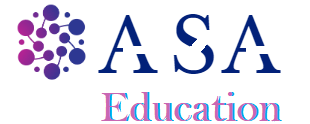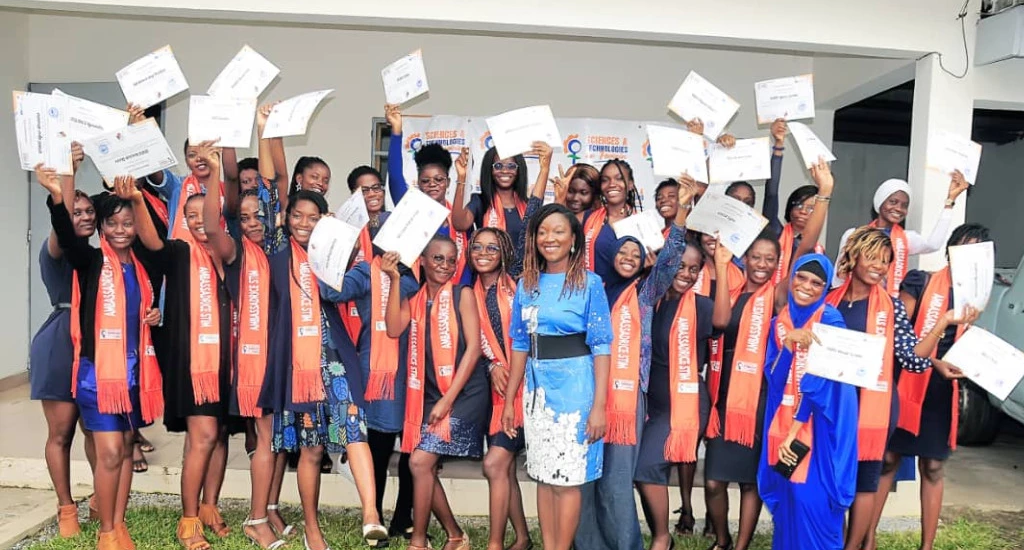Meet Christelle Ogo, a science graduate who is a champion for STEM studies for girls and women in Côte d’Ivoire.
Meet Christelle Ogo, a science graduate who is a champion for STEM studies for girls and women in Côte d’Ivoire. As the President of “Sciences et Technologies au féminin”, an association she founded in 2016 while an undergraduate in physics at the Université Félix Houphouët-Boigny in Abidjan, Christelle is passionate about promoting STEM education and breaking down gender barriers in science. Her efforts have been recognized by UNESCO, which has supported the formalization of the association, the training of 30 female STEM Ambassadors, and the upcoming awareness raising campaign targeting 2,000 young girls in 25 schools across the country as part of the project “ICT Transforming Education in Africa” in Côte d’Ivoire.
Christelle had to overcome significant obstacles to pursue her own education. With universal primary education only becoming mandatory in Côte d’Ivoire in 2015, her family did not see the value of sending her to school. Despite facing financial challenges, Christelle persevered and eventually enrolled in university, where she chose to study physics. However, she encountered many negative perceptions about women in science. “You are a girl. Why choose this academic field when you are going to get married and have children?” said the men around her, including her classmates and even some of her professors.
With very few girls studying physics in her class and a range of challenges uniting them, Christelle started her association as a safe haven for herself and her peers. The association served as a self-help group to motivate each other and stay on top of the demanding coursework, overcoming obstacles, pushback and condescending comments. “A colleague was about to drop out but thanks to the organization she continued studying and now she is an engineer,” recalls Christelle with pride.
“Sciences et Technologies au féminin” became an official association in 2019, thanks to the support provided by UNESCO. The association provides support and mentoring to girls enrolled in all STEM and information and communication technology (ICT) fields, ensuring that they have the right support system to finalize their studies. At the time of writing, the association has about 200 members dispersed throughout eight public universities and two teacher training colleges. UNESCO has also supported the training of 30 outstanding women across those institutions to become female STEM Ambassadors.
Encouraging the science track in secondary school
To encourage more women to pursue studies and careers in STEM, it is important to provide interventions and actions at the secondary school level. With this goal in mind, “Sciences et Technologies au féminin” recently expanded its membership to lower and upper secondary school students. Unfortunately, data from Côte d’Ivoire shows that only 28% of girls pursue the science track at upper secondary level, as opposed to 60% of boys. As part of its efforts to address this disparity, UNESCO will support an awareness raising campaign at school level. Female STEM Ambassadors will visit the 25 pilot schools of the KFIT project in Côte d’Ivoire and implement a three-day programme aimed at inspiring young female learners to pursue STEM fields.
Reflecting on her own journey, Christelle said “Thinking back to when I was a little child, I would have liked for someone to tell me, ‘you are smart, you can do it. You can build a plane, a TV, or a telephone.’” Her association is helping to do just that. By breaking down gender barriers in science, promoting female representation in STEM fields, and providing a support system for young girls, “Sciences et Technologies au féminin” is effectively empowering girls and women across Côte d’Ivoire to pursue their dreams and achieve their full potential.
Supporting ICT in education in Africa
The training and outreach initiatives of “Sciences et Technologies au féminin” are supported by the UNESCO-Korea Funds-in-Trust (KFIT) project “ICT Transforming Education in Africa”, an initiative that fosters human and social development in African countries through the use of ICT for education. Together with Ghana and Senegal, Côte d’Ivoire is one of the beneficiaries of the second phase of the project.
The project aligns with the 2022 Transforming Education Summit’s call for quality public digital learning for all. In Côte d’Ivoire, the project addresses two of the three keys (i.e. content and capacity) for unlocking the potential of digital technologies to transform education. It has facilitated the development of the revised ICT in Education policy, as well as the ICT Competency Framework for Teachers. Furthermore, the project has created various scenarios for the use of ICT in educational activities. To pilot these scenarios during classroom learning activities, 25 middle and high schools were selected across the country and provided with the necessary equipment and teacher training. The same schools will also be a part of an awareness-raising campaign aimed at encouraging young girls to pursue STEM studies and careers. The project in Côte d’Ivoire places significant emphasis on gender-sensitive actions.







